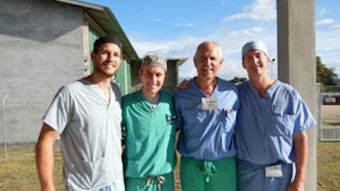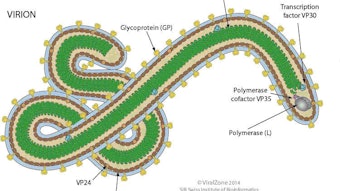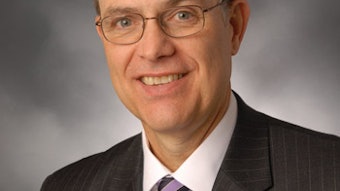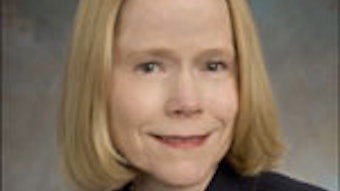Mission Trip to Santo Domingo, Dominican Republic
Earlier this year, I traveled to Santo Domingo, Dominican Republic, with a group of surgeons, anesthesiologists, nurses, and staff under the auspices of Medical Aid for the Children of Latin America (MACLA).
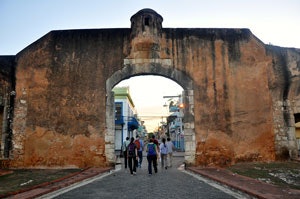 Morning walk in Santo Domingo to Hospital de Padre Billini.
Morning walk in Santo Domingo to Hospital de Padre Billini.Cheryl C. Nocon, MD
Humanitarian Travel Grant Awardee
Earlier this year, I traveled to Santo Domingo, Dominican Republic, with a group of surgeons, anesthesiologists, nurses, and staff under the auspices of Medical Aid for the Children of Latin America (MACLA). MACLA is a not-for-profit organization founded in 1985 by a plastic and reconstructive surgeon with the mission to provide surgical reconstruction of various physical deformities for the poor residents of Bolivia and the Dominican Republic. It is an organization that boasts a 30-year relationship with the host country and its county hospital equivalent, Hospital de Padre Billini. As a PGY-IV otolaryngology resident from the University of Chicago, I accompanied my attending, Alexander Langerman, MD.
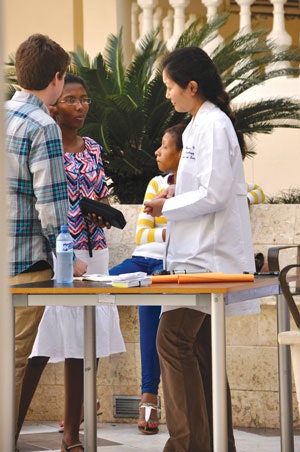 Pre-operative clinic, evaluation and selection of surgical candidates with the help of Peace Corps volunteer and language interpreter.
Pre-operative clinic, evaluation and selection of surgical candidates with the help of Peace Corps volunteer and language interpreter.During the course of one busy pre-operative clinic day and four long operative days, our group saw about 250 patients and performed about 100 surgeries. Such an undertaking would have been an organizational and logistical challenge even in our modern home institutions, let alone a resource-strapped hospital in the Dominican Republic where intermittent power outages shut down the anesthesia machines and postponed cases. Despite the occasional glitch, we were able to perform the surgeries safely, care for our patients appropriately, and enjoy ourselves in the process. Even when two cases were carried out in the same operating room—complete with two sets of surgeons, two sets of anesthesiologists/CRNAs, and two sets of support staff—and the limitations of our space, time, and resources painfully obvious, the sense of satisfaction and camaraderie at the end of the week was unanimous. It was a great lesson in what patience, composure, and a good attitude can accomplish, even when faced with challenges that will likely surpass anything I will ever encounter in the U.S.
I think a key to our group’s success was understanding our limitations, maximizing our resources on patients who would benefit the most from surgery, and selecting surgical candidates whom we anticipated would not need close post-operative follow-up, whether they were in the D.R. or the U.S. This included cosmetic procedures that would have an immediate influence (excision of disfiguring facial scars and masses); cosmetic procedures that would have a delayed, albeit significant, influence (staged ear reconstructions that could be scheduled to coincide with our biannual trips); and surgeries that could have significant functional improvement (tympanoplasties). Many surgical candidates were unfortunately turned away, not because of the lack of surgical skill or resources, but because of the high risk of post-operative complications or the lack of close follow-up that such a surgery and patient deserved.
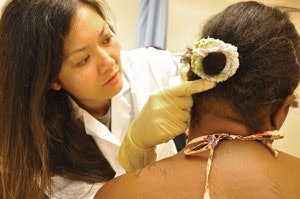 Post-operative clinic, follow-up visit for ear reconstructive surgery.
Post-operative clinic, follow-up visit for ear reconstructive surgery.The final day of our trip was reserved for post-operative visits. The results were encouraging, as many patients were healing and recovering well from their surgeries. The long-term success was confirmed a month later when the MACLA director informed us of the positive reports from our Dominican liaison and host doctor, Miguel Cotes, MD. Another means of tracking our patients’ success was through the Peace Corps volunteers who helped us with language translation. In many cases, the patients were friends and host families of the volunteers, who accompanied them to Santo Domingo. They continued to act as our unofficial MACLA ambassadors and bring any concerns or questions from the patients to our attention.
My time in the Dominican Republic certainly strengthened my desire to incorporate international work as part of my career. Thanks to the funding provided by the AAO-HNSF Humanitarian Efforts Committee and the Alcon Foundation, I was able to experience the unique challenges and rewards of working with a group like MACLA. I unreservedly recommend this and any other humanitarian trip to other doctors, whatever stage they may be in their careers.
